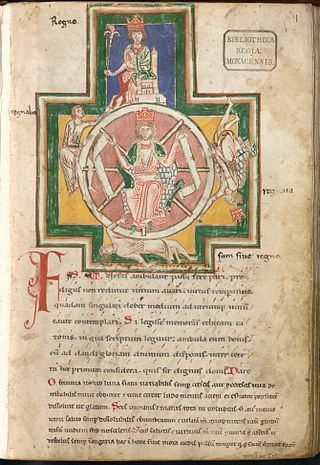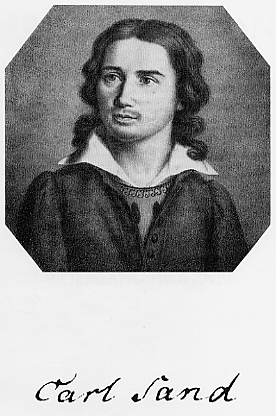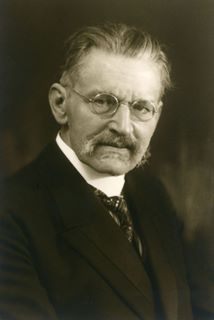Gerlinde Huber-Rebenich (born in Mannheim, 1959) is a German philologist. She specializes in medieval and neo-Latin literature, and the medieval reception of Ovid.
Gerlinde Huber-Rebenich (born in Mannheim, 1959) is a German philologist. She specializes in medieval and neo-Latin literature, and the medieval reception of Ovid.
Gerlinde Huber-Rebenich studied Latin and French at the University of Mannheim, the University of Nantes and the University of Lausanne. After a year of study at Corpus Christi College, Oxford University, she studied Latin philology at the University of Heidelberg from 1986 to 1989. In 1990, she received her doctorate in Mannheim with the thesis Das Motiv der "Witwe von Ephesus" in lateinischen Texten der Antike und des Mittelalters (The Motif of the 'Widow of Ephesus' in Latin Texts of Antiquity and the Middle Ages). [1] Her habilitation took place in 1995 with Klassische Philologie unter Einbeziehung der Wirkungsgeschichte der lateinischen Literatur.
From 1989 to 1991 Huber-Rebenich worked as a research assistant at the Europa-Institut of the University of Mannheim on the research project Repertorium der textbegleitenden Druckgraphik zu Ovids Metamorphosen. She then worked at Heidelberg University Library, where she cataloged manuscripts. In 1995 she was appointed Professor of Medieval and Modern Latin at the University of Jena. In 2002, she was elected as a full member of the Saxon Academy of Sciences. She is a member of the Academy of Non-Profit Sciences in Erfurt. She was a lecturer in Latin philology from 2009 to 2010 at the University of Bern.

Carmina Burana is a manuscript of 254 poems and dramatic texts mostly from the 11th or 12th century, although some are from the 13th century. The pieces are mostly bawdy, irreverent, and satirical. They were written principally in Medieval Latin, a few in Middle High German and old Arpitan. Some are macaronic, a mixture of Latin and German or French vernacular.

Priscianus Caesariensis, commonly known as Priscian, was a Latin grammarian and the author of the Institutes of Grammar, which was the standard textbook for the study of Latin during the Middle Ages. It also provided the raw material for the field of speculative grammar.

Karl Ludwig Sand was a German university student and member of a liberal Burschenschaft. He was executed in 1820 for the murder of the conservative dramatist August von Kotzebue the previous year in Mannheim. As a result of his execution, Sand became a martyr in the eyes of many German nationalists seeking the creation of a united German national state.

Julius Pokorny was an Austrian-Czech linguist and scholar of the Celtic languages, particularly Irish, and a supporter of Irish nationalism. He held academic posts in Austrian and German universities.

Eduard Julius Theodor Julius Friedländer was a German numismatist.

Richard August Reitzenstein was a German classical philologist and scholar of Ancient Greek religion, hermetism and Gnosticism. He is described by Kurt Rudolph as “one of the most stimulating Gnostic scholars.” With Wilhelm Bousset, he was one of the major figures of the Religionsgeschichtliche Schule.
Georges Nicolas Tamer holds the Chair of Oriental Philology and Islamic Studies at the Friedrich-Alexander-University Erlangen-Nuremberg. Until September 2012, he was professor of Arabic and Islamic studies and the holder of the M.S. Sofia Chair in Arabic Studies at the Ohio State University in Columbus, Ohio. A scholar of religion, philosophy, and Arabic and Islamic literature and culture, his fields of specialization include Qur'anic studies, Arabic philosophy, Christian- and Judeo-Arabic thought, and Islam in modernity. He has previously taught at the Freie Universität Berlin, the University of Erlangen-Nürnberg, and the Central European University.
Ulrich Steinvorth (born 1941) is a German political philosopher. He earned his doctorate with Günther Patzig in 1967. His dissertation was on private language and sensation in Wittgenstein. He habilitated in 1975 at the University of Mannheim with a thesis that advanced an analytic interpretation of Marx's Dialectic. His primary field of research is political philosophy. Additionally, he has published on topics in moral philosophy and applied philosophy, as well as the history of philosophy and metaphysics. He has also been an active supporter of the German branch of the Creative Commons movement.
Johann Maier was an Austrian scholar of Judaism, and was founder and, for thirty years, director of the Martin Buber Institute for Jewish Studies at the University of Cologne. He retired in 1996, and was living in Mittenwald, in Upper Bavaria.
Peter Kruschwitz FHEA FRHistS M.A.E. is Professor of Ancient Cultural History at the University of Vienna. He specialises in Roman poetic culture and song culture with a particular focus on Latin verse inscriptions and non-elite cultural practice. He has published widely on Roman comedy, Latin linguistics and Roman linguistic discourse, the wall inscriptions of Pompeii and Herculaneum, and Roman metre.
Carl Schmidt was a German Coptologist. He made editions of various Coptic texts, and was active in Egypt in purchasing papyri for German universities. He also assisted Sir Chester Beatty in his papyri purchases.
Paul Gerhard Schmidt was a German medievalist and professor emeritus of medieval Latin philology.
Nicholas Mesarites was a Byzantine Greek churchman and writer, who eventually rose to the office of Metropolitan of Ephesus in the Empire of Nicaea.
Friedrich Jacob Behrend was a German physician known for his published works, in particular, subjects dealing with venereal disease, public hygiene and prostitution. He is also credited with translating a number of foreign language medical works into German.
Paul Lehmann was a German paleographer and philologist.
Ratpert of St Gallen was a scholar, writer, chronicler and poet at the Abbey of Saint Gall. He wrote in Medieval Latin and in Old High German.
Henriette Harich-Schwarzbauer is a professor and head of the department of Latin philology at the University of Basel, Switzerland.
Kurt von Fischer was a Swiss musicologist and classical pianist.

Ludwig Schmugge is a German historian.
Frank-Rutger Hausmann is a German Romanist and historian.